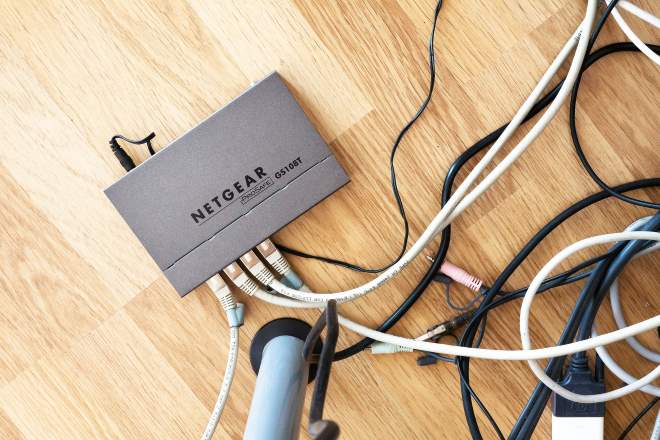Understanding the Cost Structure of Yokohama Tires for Buyers
Yokohama tires represent a significant investment for vehicle owners, with pricing influenced by multiple factors that extend beyond simple manufacturing costs. Consumers navigating the tire market need a comprehensive understanding of how various elements contribute to tire pricing, model selection, and overall value. This article breaks down the key considerations that impact Yokohama tire pricing and helps buyers make informed purchasing decisions.

What Determines Yokohama Tire Price Ranges?
Yokohama tire prices vary significantly based on several interconnected factors. Tire size represents one of the primary determinants, with larger tires for trucks and SUVs typically commanding higher prices than standard passenger car sizes. The tire’s performance rating also plays a crucial role—high-performance tires designed for sports cars or enhanced handling characteristics generally cost more than standard all-season options. Additionally, the specific rubber compounds and tread patterns engineered for different driving conditions influence manufacturing costs and, consequently, retail pricing. Yokohama’s product lines range from budget-friendly touring tires to premium performance and specialty off-road models, creating a diverse price spectrum that accommodates various consumer needs and budgets.
Factors Affecting Yokohama Tire Price Points
Beyond the basic tire specifications, several market and seasonal factors impact Yokohama tire pricing. Seasonal demand fluctuations create price variations throughout the year, with winter tire prices often peaking in late fall as Canadian drivers prepare for harsh weather conditions. Supply chain considerations, including shipping costs and tariffs, can affect the final retail price consumers encounter. The warranty coverage and expected tread life also contribute to pricing differences—tires with longer warranty periods and higher mileage ratings typically carry premium price tags that reflect their extended value proposition. Retailers may offer promotional pricing during specific periods, and regional market conditions across Canada can create price variations between provinces and urban versus rural locations.
Common Yokohama Tire Models and Price Comparison
Yokohama manufactures numerous tire models designed for different vehicle types and driving conditions. The AVID Ascend GT represents their touring all-season category, offering balanced performance for sedans and crossovers. The Geolandar series caters to SUV and light truck owners, with variations designed for highway driving, all-terrain capability, and winter conditions. Performance enthusiasts might consider the ADVAN Sport series, engineered for enhanced handling and responsiveness. For winter driving in Canadian climates, the iceGUARD line provides specialized cold-weather performance. Each model category occupies a different price tier, reflecting the engineering specifications and intended use cases.
| Tire Model | Category | Estimated Price Range (CAD per tire) |
|---|---|---|
| AVID Ascend GT | All-Season Touring | $120 - $200 |
| Geolandar A/T G015 | All-Terrain SUV/Truck | $180 - $280 |
| Geolandar X-AT | Extreme All-Terrain | $220 - $350 |
| ADVAN Sport V105 | High Performance | $200 - $380 |
| iceGUARD iG53 | Winter Passenger | $130 - $220 |
| Geolandar I/T-S | Winter SUV/Truck | $180 - $300 |
Prices, rates, or cost estimates mentioned in this article are based on the latest available information but may change over time. Independent research is advised before making financial decisions.
Installation and Additional Service Costs
The purchase price of Yokohama tires represents only one component of the total investment. Installation services typically add $20 to $40 per tire, depending on the service provider and location. This fee generally includes mounting the tire on the wheel, balancing, valve stem replacement, and disposal of old tires. Canadian buyers should also consider the cost of seasonal tire storage if they maintain separate summer and winter sets, with storage fees ranging from $50 to $150 per season. Wheel alignment services, recommended when installing new tires, add another $80 to $150 to the total cost. Some retailers bundle these services into package deals, while others price them separately. Additional considerations include tire pressure monitoring system (TPMS) sensor programming or replacement, which can add $50 to $100 per sensor if needed.
Understanding Total Ownership Expenses
Calculating the true cost of Yokohama tires requires considering the total ownership period rather than just the initial purchase. The expected tread life, typically measured in kilometers, directly impacts the cost-per-kilometer value. A tire priced at $200 with a 100,000-kilometer warranty offers better long-term value than a $150 tire rated for 60,000 kilometers. Fuel efficiency also factors into ownership costs—tires with lower rolling resistance can improve fuel economy, creating savings over the tire’s lifespan. Maintenance requirements, including rotation schedules and potential repairs, contribute to ongoing expenses. Canadian drivers should also account for the possibility of maintaining two tire sets for seasonal changes, effectively doubling the initial investment but extending the usable life of each set. When evaluating Yokohama tires against competitors, comparing total ownership costs rather than purchase prices alone provides a more accurate financial picture.
Understanding these cost structures enables Canadian consumers to make informed decisions when purchasing Yokohama tires. By considering not just the initial price but also installation costs, service requirements, and long-term value factors, buyers can select tire options that align with both their performance needs and budget constraints. The diversity of Yokohama’s product lineup ensures options exist across various price points, allowing consumers to balance quality, performance, and affordability based on their specific driving conditions and priorities.




